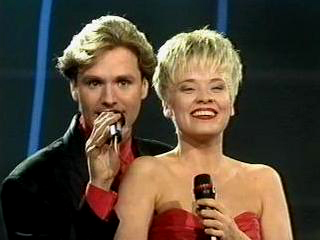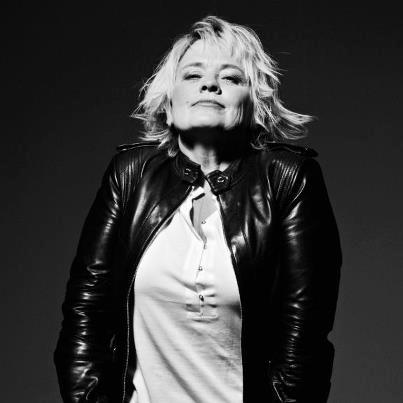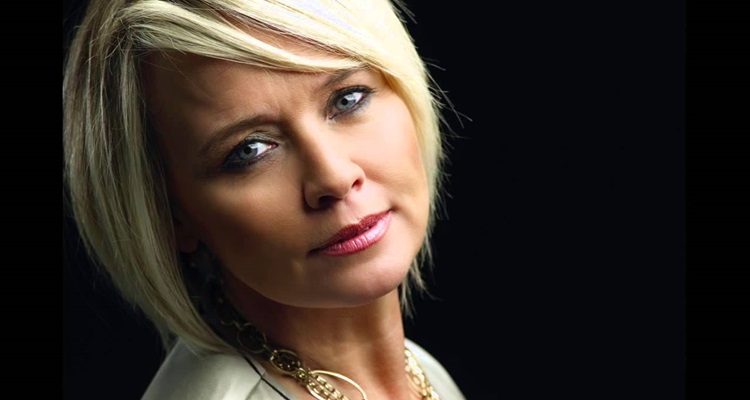For over three decades Sigríður Beinteinsdóttir, otherwise known as Sigga Beinteins, has been one of Iceland’s most prominent singers. Today she’ll be performing her new single, “Surrender”, at the Reykjavík Pride outdoor concert (at Arnarhóll). We spoke to Sigga about her newly released song, what it takes to make it in the music industry for so long and why Pride is still important in Iceland – as well as being a lot of fun.
Congratulations on the new song. How did it come about and become the official Reykjavík Pride song?
“Thank you, it’s a great honor to perform the official Reykjavik Pride song this year. The song came to me last winter when the composers, Swedish twin sisters Ylva and Linda Person, sent me a demo of a few songs of theirs. They wanted to know if I was interested in singing any of them for publication.
This particular song, “Surrender”, was one of the songs that immediately caught my attention. I thought it was a well composed and “catchy” song with great potential. All the elements to become a Euro hit. So we finished the song and sent it to the Eurovision song contest in Iceland. Unfortunately it didn’t make to the Icelandic contest. But since we all felt the song had great potential to become a summer hit in Iceland it was offered to the Reykjavík Pride board of directors and they loved it.”
There’s a Eurovision vibe to it, not surprising given that the songwriters live in Sweden, the land of Eurovision extravaganza. Why did it appeal to you?
“I agree, it has a great Eurovision vibe to it and that’s one of the reason I originally liked it. What appeals to me mostly is the melody itself. And the fun summer beat which mixes together the old and new disco beats.”
It‘s been two decades since you sang „Nætur“ on behalf of Iceland in Eurovision in Ireland. Would you compete again?
“I’m not sure I would participate in Eurovision again on behalf of Iceland. But if I would even consider it, the song in question would have to be really strong. I would have to have one hundred percent faith in that it would go far in the contest. To tell you the truth, I was pretty certain that “Surrender” would do well in the Eurovision contest. So it came as a big surprise that it didn’t even make it into the contest in Iceland. But that’s Eurovision for you, always full of surprises.”
You’ve competed three times in the past. Can you share a memorable Eurovision moment with us?

“What’s most memorable is how much fun it’s to take part in the contest, to see how big of a show it is, to perform and try your very best for your country. It’s of course a big thing so you feel pressured to do well – not least for your country.
However the most memorable incident was with the band Stjornin in Zagreb 1990. I performed in high heels and the famous red dress – high heels and dresses weren’t exactly my every day outfits at the time. I was really stressed out since the floor was also laid with plates that had small gaps between them. So not only did I have to sing my very best, wear a dress and high heels, but I also needed to step between the gaps when dancing so the heels wouldn’t get stuck in the gaps!”
For decades you’ve been one of our most renowned singers. What’s the key ingredient to such a longevity?
“That’s a big question with no right answer, since it would be different for everyone. But one of the key elements is to perform and make appearances. Otherwise you’ll quickly be forgotten. Of course you need to make music you love and sing with your heart. That’s what appeals to your listeners. Also be humble and thankful for the gift of being able to sing and bring joy and happiness to people. That’s not something that everyone can do and it shouldn’t be taken for granted.”
Would you say the music industry has changed much since you started out?
“I guess the Internet has been the key game changer in the music industry like in almost everything else. Today, young artists can be heard all over the world instantly and do a lot of their own marketing, especially abroad. That’s something that wasn’t even a remote possibility when I started my career.

At the same time, there’s a lot more on offer so your music has to stand out. But young kids can become YouTube celebrities even though they wouldn’t get their music played on the radio stations. This creates more opportunities for any type of artists and makes the cake bigger for everyone.
However it’s getting harder for musicians and composers to get paid for their songs and lyrics since there are less hard copies being sold. A thing I believe will evolve and even out in time like everything else.”
A lot of singers seem to suffer from vocal problems now a days. How do you take care of your voice?
“The vocal cords are a complex organism. Nobody has the same type of voice, so nobody performs or acts the same way. The voice, like any other muscle in the body, needs to be used and exercised in order to keep it in good shape. People who have a lot of vocal problems are usually not using the right technique. Which is something they should learn sooner than later. Otherwise they might lose their voice or damage the vocal cords. Throughout my career I’ve fortunately had very little problems with my voice. If anything, I’ve gained more strength and control over it as the years have passed.”
Who’s currently your favorite artist(s)?
“That’s a difficult question. I listen to a very broad range of music so it’s hard to pick one out. My all time favorites though have always been Elvis Presley and Tina Turner, outstanding performers that you can always look to for inspiration.”
The big Pride Parade is coming up. Do you always participate in it or Reykjavík Pride for that matter?
“For the past few years, yes and I made an honorary performance on the main stage in 2012 when celebrating my 50th birthday. This year I won’t be able to join the parade itself since I’ll be performing on the stage. But the whole week has been full of celebration and this weekend will continue to be. The Reykjavík Pride is one of the most fun weekends of the year.”
What significance does Pride have for you?
“It’s so great to see how it’s grown from being a small parade to being one of the largest yearly events in Iceland. A family event that welcomes everyone but also reminds us we need to keep our heads up and keep the fire going. I take part because I know it’s important to be a good role model, visible and lead with good example. That will pave the way for others to come.”
Finally, what does the future hold in store for Sigga Beinteins?
“Knock on wood, I think it’s bright in respect of Sigga the singer. I’ll keep on singing as long as I enjoy it and as long as anyone is willing to listen.”
[lbg_vp1_html5 settings_id=’4′]


